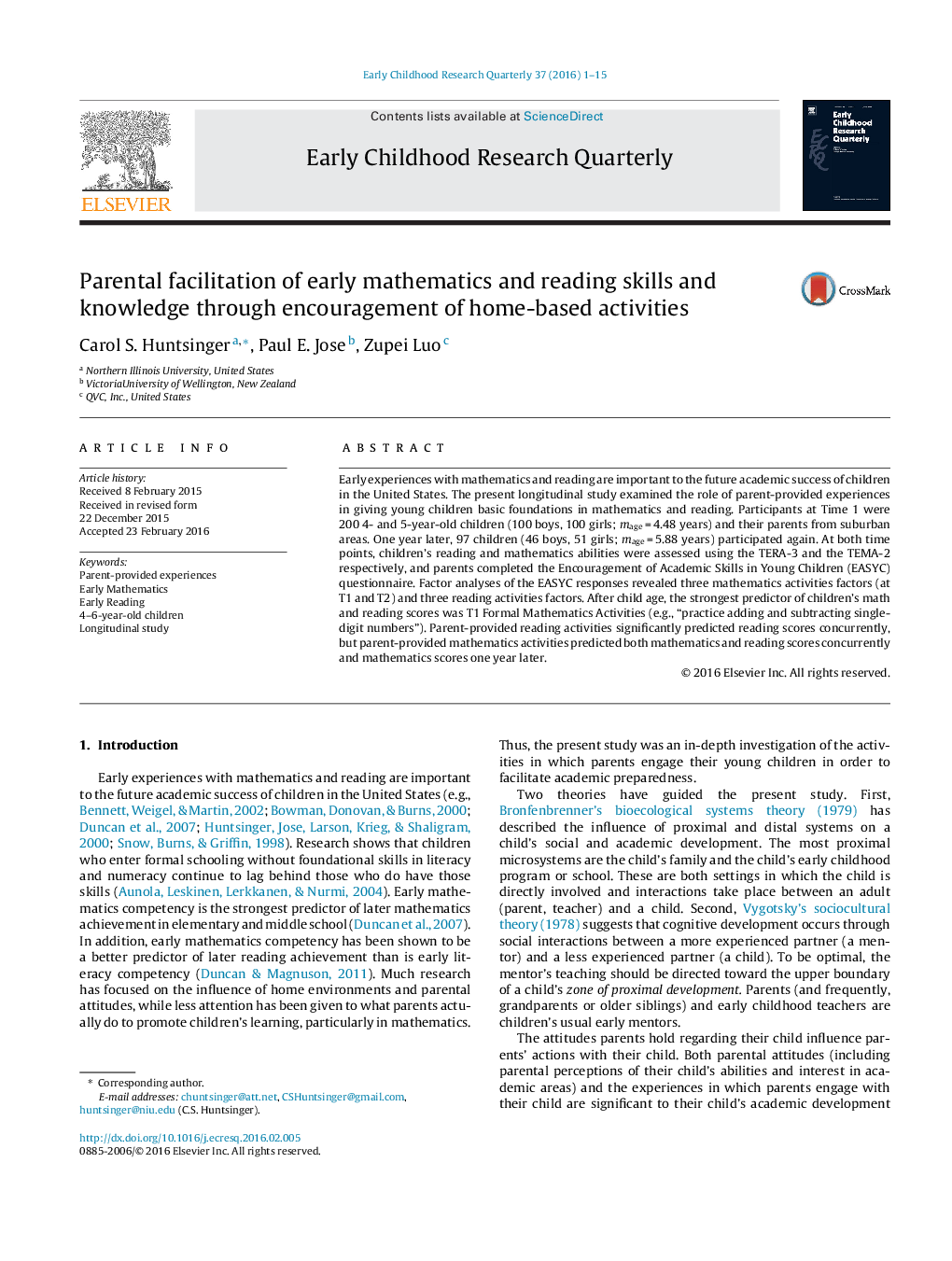| کد مقاله | کد نشریه | سال انتشار | مقاله انگلیسی | نسخه تمام متن |
|---|---|---|---|---|
| 353630 | 618935 | 2016 | 15 صفحه PDF | دانلود رایگان |
• This is a longitudinal investigation of how parent-provided activities influence young children's mathematics and reading skills and knowledge.
• Initially, 200 4- and 5-year-old children completed the TERA-2 and TEMA-3 assessments at two time points, a year apart.
• Parents completed a new 42-item Encouragement of Academic Skills in Young Children (EASYC) questionnaire.
• Parent-provided math activities factors predicted children's math and reading scores at Time 1 and math scores at Time 2.
• Reading activities factors predicted children's reading scores concurrently, but not longitudinally.
Early experiences with mathematics and reading are important to the future academic success of children in the United States. The present longitudinal study examined the role of parent-provided experiences in giving young children basic foundations in mathematics and reading. Participants at Time 1 were 200 4- and 5-year-old children (100 boys, 100 girls; mage = 4.48 years) and their parents from suburban areas. One year later, 97 children (46 boys, 51 girls; mage = 5.88 years) participated again. At both time points, children's reading and mathematics abilities were assessed using the TERA-3 and the TEMA-2 respectively, and parents completed the Encouragement of Academic Skills in Young Children (EASYC) questionnaire. Factor analyses of the EASYC responses revealed three mathematics activities factors (at T1 and T2) and three reading activities factors. After child age, the strongest predictor of children's math and reading scores was T1 Formal Mathematics Activities (e.g., “practice adding and subtracting single-digit numbers”). Parent-provided reading activities significantly predicted reading scores concurrently, but parent-provided mathematics activities predicted both mathematics and reading scores concurrently and mathematics scores one year later.
Journal: Early Childhood Research Quarterly - Volume 37, 4th Quarter 2016, Pages 1–15
